This essay originally appeared in The Soho News on December 3, 1980. I’ve taken the liberty of revising it slightly.–J.R.
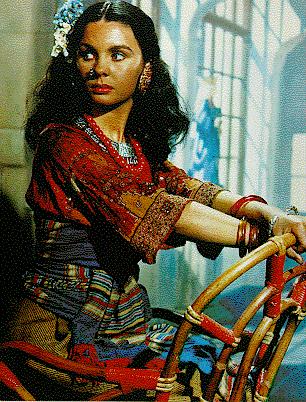
Michael Powell and
Powell & Preesburger
Museum of Modern Art, Nov. 20—Jan. 5
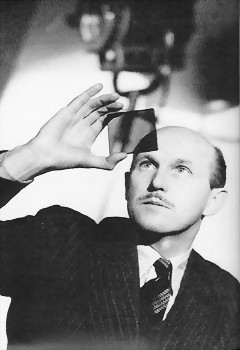
By and large, the Englishman Michael Powell directs, while his longtime Hungarian collaborator, Emeric Pressburger, writes screenplays. But when they started their own English production company, The Archers, in 1942 — an institution that lasted almost 15 years — the credits of their joint efforts usually read, “Written, directed and produced by Michael Powell and Emeric Pressburger”.
A testimony to the rare capacity for collaborative work that helps to distinguish English life and culture from American individualism, the team of P & P offers the working assumptions of auteur criticism a number of interesting challenges. On the one hand many aspects of Powell’s style, temperament and preoccupations can be traced through films that Pressburger didn’t work on. At the same time it would be too simplistic to pretend that one could separate individual contributions to their joint ventures with anything like total assurance.
Indeed, as Ian Christie reminds us in the introduction to his very helpful collection Powell, Pressburger and Others (British Film Institute, 1978), auteur criticism is more a method of reading films than a means of establishing how they were put together. Read more
This was written in the summer of 2000 for a coffee-table book edited by Geoff Andrew that was published the following year, Film: The Critics’ Choice (New York: Billboard Books), and tweaked in June 2010. — J.R.
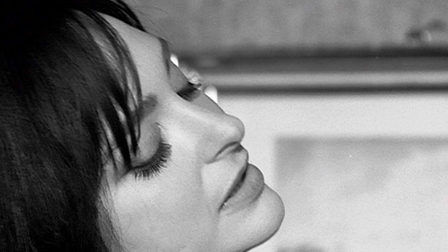
It is not surprising that Bernardo Bertolucci’s second feature — made when he was only 22 and released a year later in 1964 — has never been as fashionable as The Conformist (1969) or as popular as Last Tango in Paris (1972). But even though it is sometimes raggy and choppy as storytelling, Before the Revolution is still possibly the most impressive thing he has done to date.

In 1962, when he was asked to adapt a story by Pier Paolo Pasolini into a screenplay and then to direct it (The Grim Reaper, or La commare secca), thereby paying tribute to his main Italian mentor, he also published his first volume of poetry, In Search of Mystery. And Before the Revolution, which pays homage to his primary French inspiration, Jean-Luc Godard, is in some ways closer to a poetry collection than it is to a novel — despite the fact that the characters are named after those in Stendhal’s The Charterhouse of Parma (1839), Bertolucci’s favorite novel at the time, and Parma is the central setting.
Read more
From the Chicago Reader (March 1, 1991), slightly revised November 30, 2021. — J.R.
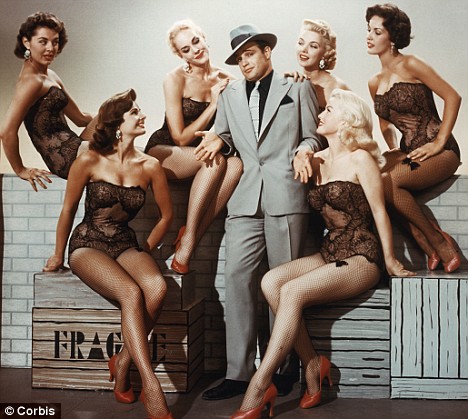
Conceivably the second best picture Sam Goldwyn ever produced (after The Best Years of Our Lives), this 1955 blockbuster musical has an undeservedly bad rep, largely because the two leads — Marlon Brando as professional gambler Sky Masterson and Jean Simmons as Salvation Army recruiter Sarah Brown — aren’t professional singers. In fact, they both do wonders with Frank Loesser’s dynamite score because they perform their numbers with feeling and sincerity, and their efforts to live up to their material are perfectly in tune with the aspirations of their characters (as well as the songs themselves). In short, this may be the only Method musical. Joseph L. Mankiewicz does a creditable job with the stylized, stagy sets and the pungent vernacular of the original Damon Runyon material (which he also adapted). Also on hand, and at their very best, are Frank Sinatra (as Nathan Detroit), Vivian Blaine (as Adelaide), Stubby Kaye, B.S. Pully, Veda Ann Borg, and Johnny Silver. 150 min. (JR)
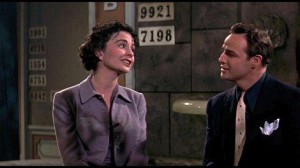 Read more
Read more






